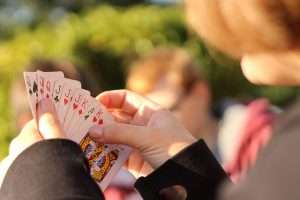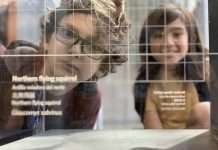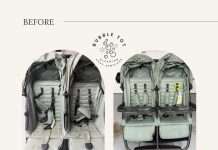 Interactive memory activities play a crucial role in occupational therapy for children, helping to develop essential cognitive skills and improve daily functioning. These engaging exercises not only enhance memory but also support executive function, attention, and visual processing abilities. Occupational therapy memory activities for kids target specific areas of development, tailoring activities to each child’s unique needs and interests.
Interactive memory activities play a crucial role in occupational therapy for children, helping to develop essential cognitive skills and improve daily functioning. These engaging exercises not only enhance memory but also support executive function, attention, and visual processing abilities. Occupational therapy memory activities for kids target specific areas of development, tailoring activities to each child’s unique needs and interests.
Memory card games are a popular choice in pediatric occupational therapy sessions. These versatile tools can be adapted to work on various skills, from visual memory and sequencing to fine motor control. Therapists may also incorporate digit recall activities, where children repeat number series forward and backward, to boost working memory capacity.
Visual memory activities are particularly beneficial for children struggling with letter and number recognition. By practicing with shapes, patterns, and symbols, kids can improve their ability to remember and distinguish visual information. This skill translates directly to academic tasks like reading and writing, supporting overall learning and development.
This information is for educational purposes and should not be relied upon as medical advice. For advice specific to your situation, please consult a healthcare provider.
Key Takeaways
- Memory activities in occupational therapy enhance cognitive skills and daily functioning
- Card games and digit recall exercises target various aspects of memory and executive function
- Visual memory tasks support academic skills like reading and writing
Essential Components of Occupational Therapy
Occupational therapy encompasses several key elements aimed at improving a child’s functional abilities and independence. These components work together to address cognitive, motor, and social aspects of development.
Understanding Occupational Therapy
Occupational therapy focuses on helping children participate fully in daily activities. It aims to improve their ability to perform tasks at home, school, and in social settings. Therapists assess each child’s strengths and challenges to create personalized treatment plans.
Interventions often involve play-based activities that are both engaging and therapeutic. These activities are designed to target specific skills while keeping children motivated. Occupational therapists also work closely with parents and teachers to ensure continuity of care across different environments.
Building Foundational Cognitive Skills
Cognitive skills form the basis for learning and problem-solving. Occupational therapists use various techniques to enhance these abilities in children. Memory games, puzzles, and sequencing activities help improve attention span and working memory.
Therapists may employ:
- Matching games to boost visual perception
- Sorting tasks to develop categorization skills
- Mazes to enhance planning abilities
These activities are tailored to each child’s age and skill level. As children progress, therapists gradually increase the complexity of tasks to challenge and further develop cognitive abilities.
Fostering Fine and Gross Motor Skills
Motor skills are crucial for a child’s independence and academic success. Occupational therapy targets both fine and gross motor development through specialized activities.
Fine motor activities include:
- Bead stringing
- Using tweezers to pick up small objects
- Cutting with scissors
Gross motor exercises focus on:
- Balance beam walks
- Obstacle courses
- Ball games
Therapists often combine motor tasks with cognitive challenges. For example, a child might sort colored beads while improving pincer grasp. This approach enhances multiple skills simultaneously.
Enhancing Communication and Social Skills
Communication and social skills are essential for a child’s overall development. Occupational therapists incorporate these elements into their sessions to promote well-rounded growth.
Role-playing exercises help children practice social interactions. Group activities encourage teamwork and turn-taking. Therapists may use visual aids and social stories to teach appropriate behaviors in different situations.
Communication skills are fostered through:
- Describing objects or actions
- Following multi-step instructions
- Participating in structured conversations
These activities are often integrated with motor or cognitive tasks, creating a holistic approach to therapy that addresses multiple developmental areas simultaneously.
Interactive Memory Activities in Occupational Therapy
Occupational therapists use a variety of engaging activities to enhance memory skills in children. These activities target working memory, executive functioning, and attention while incorporating play-based approaches.
Memory Games for Cognitive Development
Memory card games are a popular choice for improving visual memory and attention. Children match pairs of cards, exercising their recall abilities. Therapists may use themed cards to maintain interest and reinforce learning in specific areas.
Picture sequence activities help develop sequential memory. Kids arrange images logically, strengthening their ability to remember and organize information. This skill transfers to daily tasks like following multi-step instructions.
Digital memory games on tablets or computers can be highly engaging. These often include colorful graphics and sound effects, appealing to children’s sensory preferences while challenging their memory skills.
Skill-Building Through Play Therapy
Play-based memory activities make learning fun and memorable. Therapists might use a toy kitchen to practice recipe recall, combining memory work with fine motor skills as children “cook” in the correct order.
Storytelling games encourage children to remember and build upon narrative elements. This improves verbal memory and language skills simultaneously.
Musical activities, such as learning song lyrics or playing instruments, engage auditory memory. Rhythm and repetition aid in information retention and recall.
Engagement and Self-Regulation Strategies
Mindfulness exercises help children focus their attention, a crucial component of memory formation. Simple breathing techniques or guided imagery can improve concentration and reduce distractions.
Self-talk strategies teach kids to verbalize steps in a task, reinforcing memory through auditory and verbal channels. This technique aids in problem-solving and impulse control.
Movement-based activities, like obstacle courses with sequenced instructions, combine physical activity with memory challenges. This approach is particularly effective for children with attention difficulties.
Incorporating Sensory Processing Techniques
Sensory-rich activities support memory formation in children with sensory processing challenges. Therapists might use textured materials or scented items to create strong sensory associations with information.
Visual cues, such as color-coding or picture schedules, help children with visual processing strengths to remember sequences and routines more effectively.
Multisensory approaches, combining visual, auditory, and tactile elements, cater to different learning styles. For example, spelling words with sand or shaving cream engages touch and sight simultaneously.
Interactive memory activities play a vital role in occupational therapy for children. These engaging exercises help develop crucial cognitive skills while keeping kids motivated. Therapists can effectively target visual, auditory, and working memory by incorporating games, puzzles, and hands-on tasks. Regular practice with these activities can improve children’s attention, focus, and overall cognitive functioning.





















